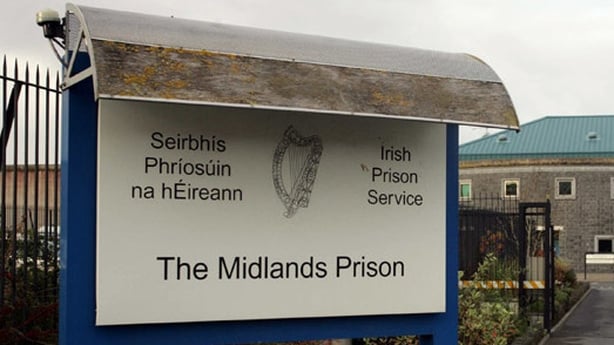The number of sex offenders who are being released from prison without having undergone the State's main treatment programme has increased.
Out of 135 sex offenders who will be released this year, as few as 17 have taken part in the Building Better Lives (BBL) programme, according to figures obtained by RTÉ's This Week.
There are between 400 and 450 sex offenders in Irish prisons at any one time, including men convicted of crimes ranging from rape, to molestation and child sex abuse.
BBL is the State's main treatment programme aimed at reducing the harm sex offenders may pose after their release from jail.
Sex abusers who undergo BBL treatment are almost four times less likely to reoffend after leaving prison, than those who do not participate in the therapy-based programme.
We need your consent to load this rte-player contentWe use rte-player to manage extra content that can set cookies on your device and collect data about your activity. Please review their details and accept them to load the content.Manage Preferences
It is made available to all sex offenders in Ireland, and is based on international best practice.
However, it is voluntary, and it requires participants to admit the offence they caused and the harm done to victims before they can take part.
New figures obtained by RTÉ reveal that fewer sex offenders are now taking part in the programme before their release when compared to just four years ago.
In 2014, the then justice minister Frances Fitzgerald told the Dáil that 21% of sex offenders had taken part in the BBL programme before being released from prison.
However, while the numbers of sex offenders being released every year has stayed the same, at around 135, the numbers undergoing the main treatment programme fell to just 12% by the time of their release, for this year.
That is despite the BBL programme being expanded to include inmates in both the Midlands Prison, as well as Arbour Hill, since 2016.
Around two-thirds of the country's sex offenders are accommodated in Midlands Prison and the remainder in Arbour Hill.

The head of the Irish Prison Service Psychology service, Dr Emma Black, told RTÉ that the recidivism rate for those treated under the BBL programme was much lower than those untreated.
"The recidivism rate for people who have undergone the treatment, over 15 years, is about 5.4%, compared with those untreated at about 19.6%," she said.
Dr Black said that some sex offenders are unsuitable to take part in BBL, while others deny their offences.
She said there was also an apparent increase in sex offenders entering custody who were less socially or mentally stable, and also an increase in younger offenders, making them less suitable for the group BBL sessions as they tended to live more "chaotic" lives.
We need your consent to load this rte-player contentWe use rte-player to manage extra content that can set cookies on your device and collect data about your activity. Please review their details and accept them to load the content.Manage Preferences
She said that offenders who did not take part in BBL are dealt with through a wide range of other supports and monitoring, in conjunction with An Garda Síochána and the Probation Service.
She said this included access for inmates to individual offence-focused and risk-avoidance work by the Psychology and Probation Service.
It also included psychiatric care; pre-release accommodation and resettlement supports; education and training; and close monitoring and supervision after release.
She said that a significant number of those with release dates in 2018 who did not participate in BBL have been managed in this way.
However, Dr Black said following their engagement with an international expert earlier this year, the Irish Prison Service was now considering introducing a specialised treatment programme aimed specifically at so-called "categorical deniers" who refused to admit the sexual abuse they engaged in, or that it was harmful to their victims.
She said the prison service would be putting a business case proposal to the Department of Justice for additional resources for the new "deniers" programme, which was based on a model currently in operation in Canada.
Minister for Justice Charlie Flanagan has acknowledged the importance of the Building Better Lives programme, but said he is satisfied it is not appropriate for everyone.
Mr Flanagan said he is "very keen" to work closely with the Irish Prison Service on the issue.
"I believe its important that we further develop and expand the course to ensure that there are a range of psychological services available to prisoners; having regard to the fact that every prisoner will at some stage be reentering the community," he said.
The Dublin Rape Crisis Centre said it is heartening that the Prison Service and Mr Flanagan are conscious of the need for a wider programme.
Noeline Blackwell, CEO of the DRCC, said improvements in the services are in the interests of both the convicted person and society, but added that change has to happen soon.
"It has to be done now, because with every single month, every year, somebody is being released and the chances are they will not have done the work that was necessary to reduce their risk when they come out".
Additional reporting: Laura Hogan







